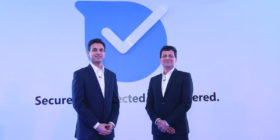Sequoia Capital took a victory lap Wednesday after Facebook Inc.’s $19 billion deal for WhatsApp.
The venture-capital firm, which invested $8 million in the smartphone-messaging app in 2011, stands to reap a huge return on that investment following Wednesday’s deal.Facebooks said it will pay $19bn in cash and stock to acquire WhatsApp, a deal that further emphasizes the social network’s mobile push.
In a blog post, Jim Goetz, a partner at Sequoia Capital praised the deal as well as WhatsApp’s co-founders Jan Koum and Brian Acton.
“For the past three years, it’s been our privilege to work shoulder-to-shoulder with Jan and Brian as their close business partner and investor,” Sequoia said. “It’s been a remarkable journey, and we could not be happier for these talented underdogs whose unshakeable beliefs and maverick natures epitomize the spirit of Silicon Valley.”
Mr. Goetz outlined four numbers that tell the WhatsApp story: 450, 32, 1 and 0. Here’s a recap from his post:
“450. WhatsApp has more than 450 million active users, and reached that number faster than any other company in history. It was just nine months ago that WhatsApp announced 200 million active users, which was already more than Twitter. Every day, more than a million people install the app and start chatting, and they remain more engaged with WhatsApp than on any other service. Incredibly, the number of daily active users of WhatsApp (compared to those who log in every month) has climbed to 72%. In contrast the industry standard is between 10% and 20%, and only a handful of companies top 50%…
“32. Even by the standards of the world’s best technology companies, WhatsApp runs lean. With only 32 engineers, one WhatsApp developer supports 14 million active users, a ratio unheard of in the industry. (WhatsApp’s support team is even smaller.)…
“1. Jan keeps a note from Brian taped to his desk that reads “No Ads! No Games! No Gimmicks!” It serves as a daily reminder of their commitment to stay focused on building a pure messaging experience.
“This discipline is reflected in WhatsApp’s unconventional approach to business. After one year of free use, the service costs $1 per year — with no SMS charges. This can save users trapped in expensive data plans up to $150 per year…
“0. There may be no greater testament to the viral nature of WhatsApp than the fact that the company has accomplished all this without investing a penny in marketing.”






Leave a reply